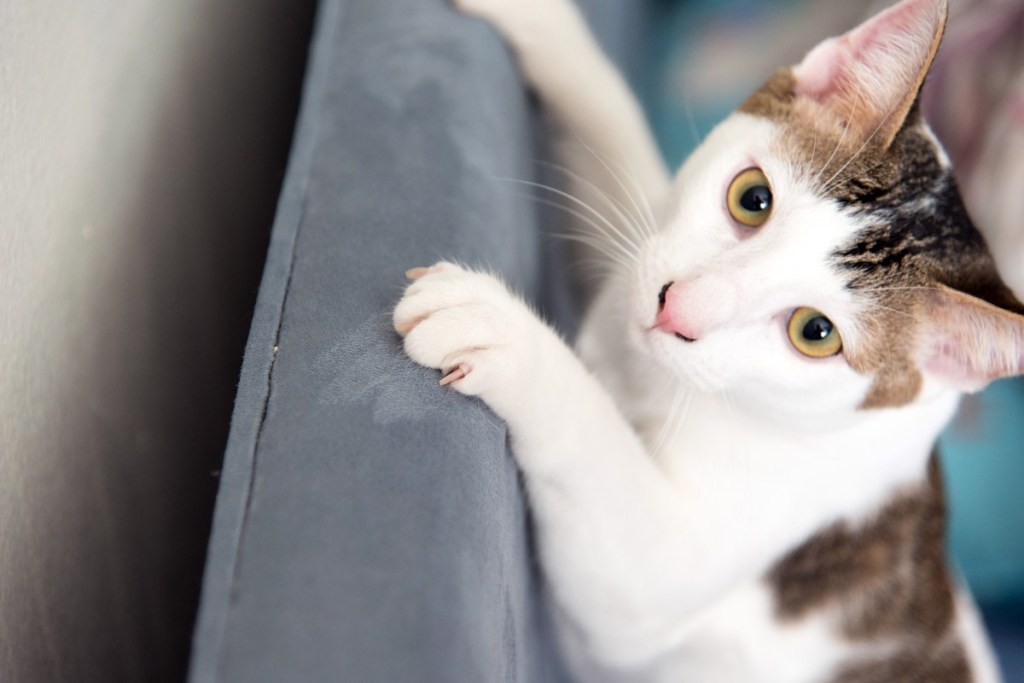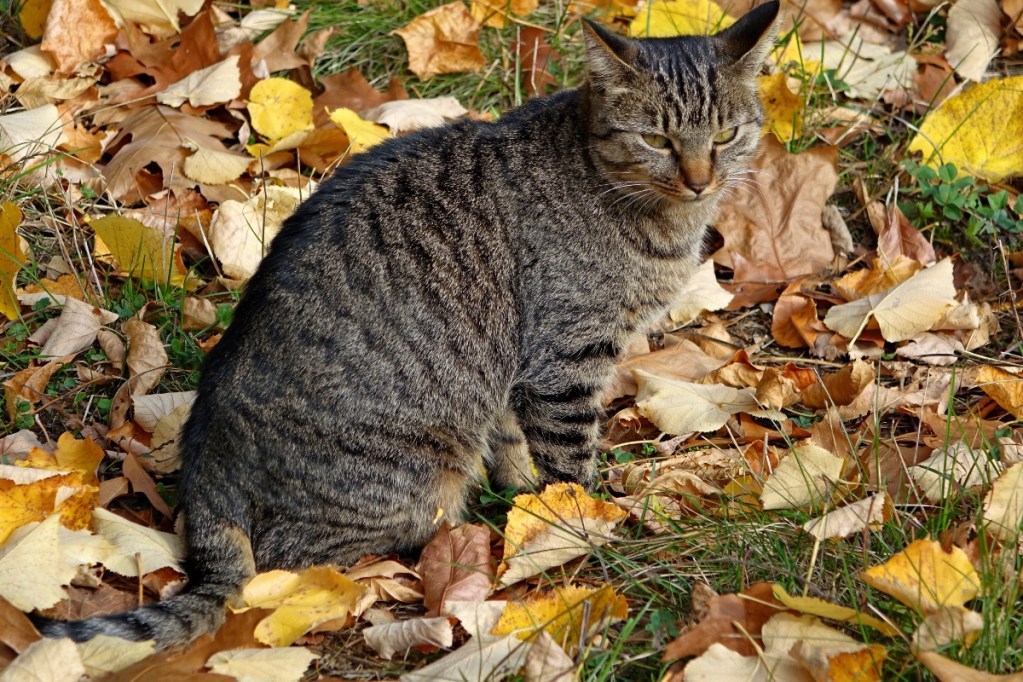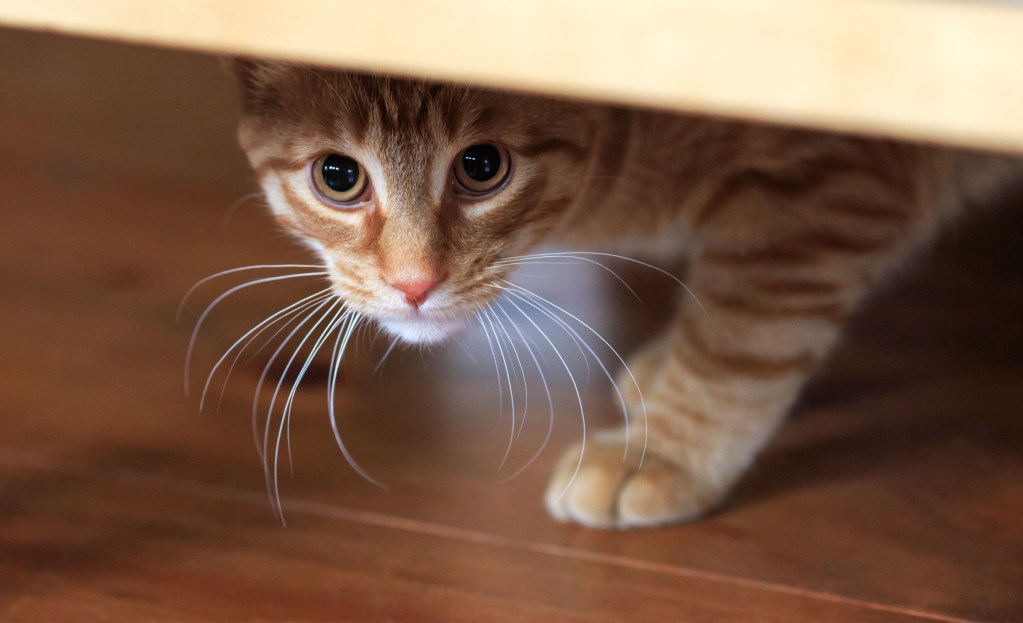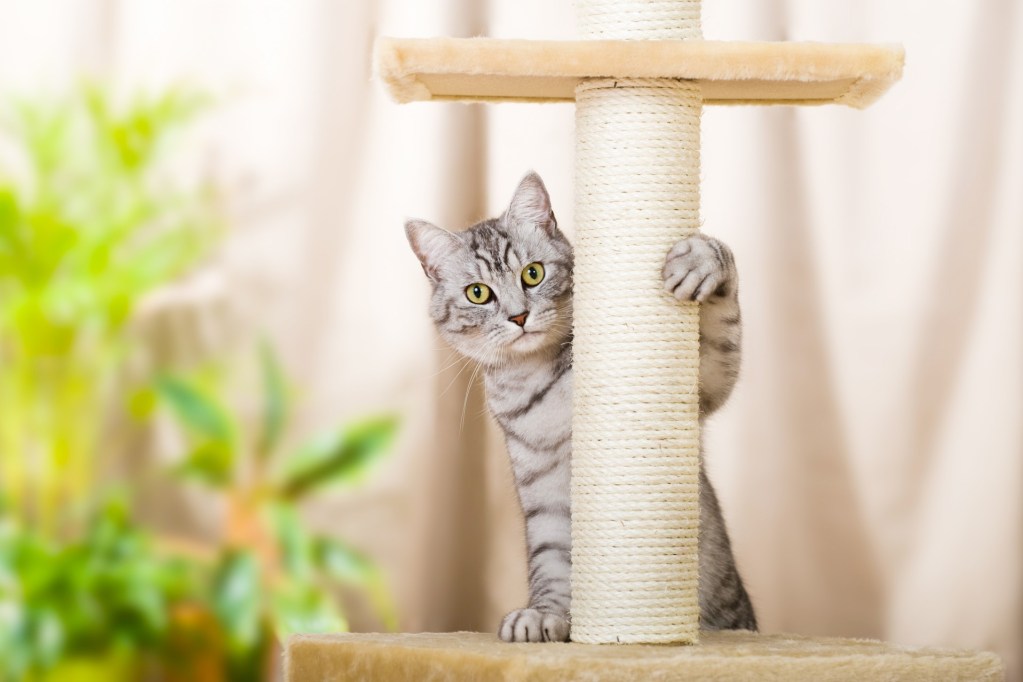Cats are a bit of a mystery. Unlike dogs, which have the reputation of being human’s best friend, our feline friends seem to view us as a necessary evil. We clean their boxes, fill their water dishes, and buy them trees to climb on so they can get away from us.
And also unlike dogs, cats are natural-born predators — known for being so bad for the ecosystem that it’s best to keep them inside. The arrangement can cause some friction, but we love our cats anyway. When a pet starts doing something out of the blue, we may worry it’s not common cat behavior. Is a cat peeing outside of a litter box cause for concern? What about when your kitty starts scratching everything? Consider this cat behavior guide a decoder to your cat’s antics and what — if anything — you can do about them.
Peeing outside the litter box
A pro of having a cat instead of a dog: Kitties tend to be easier to potty train. They know to go in the litter box. It can be concerning if your cat suddenly starts peeing outside of theirs. Peeing outside the litter box is sometimes classified as “bad cat behavior,” which leads to animals being returned to shelters.
This common cat behavior is often a cry for help. Your cat may:
- Have urinary issues or a metabolic disease, such as diabetes
- Want you to clean their box more frequently
- Feel stressed about a life change, such as a new pet, baby, or home
- Be unable to get to the litter box because of a mobility issue
The fix: First, call the vet to rule out medical issues. Ensure your cat’s litter box is accessible and not near food or drinks. Each cat should have at least one personal litter box. Thoroughly clean places where your cat has peed using an odor-eliminator to reduce the temptation to mark again.

Scratching everything
Scratching is a common cat behavior. It’s instinctual and serves several purposes, including:
- Stress relief
- Expressing excitement
- Removing dead parts of nails
- Stretching
- Boredom
- Marking
The fix: You’re never going to cut down on scratching altogether. The key is redirecting the habit so the cat is scratching something of theirs rather than your couch. Provide your kitty with rugged scratch posts around the house. Some trees even come with them. Swap the posts out when they are frayed so the cat has something fresh and sturdy.

Hissing at you or someone you love
Hearing a cat hiss can stop you in your tracks. That’s what it’s designed to do. A cat may hiss for several reasons, including:
- Warning you or someone else — a person or animal — to back off
- They’re in pain
- They’re stressed, such as about a new pet in the home
- A play session got a little too rough for their liking
The fix: Hissing can be a final warning before a cat acts physically, such as swiping or scratching. If possible, give your feline friend some space, especially if they’re displaying other body language that signals annoyance, such as an arched back and bushy tail. Keep new pets in another room and slowly introduce them to your cat using scent swaps and sniffing through a gate. Make sure people in the home, including small children, treat the kitty gently and respectfully. Talk to your vet to rule out any medical issue if the hissing seems out of nowhere and unrelated to rough play or a stressful one-off incident.

Indoor cat trying to escape
You keep your cat inside to protect them and wildlife. You tried to make it a comfy, fun place with plenty of window perches, toys, water, and cat trees. Yet, your feisty feline tries to run out the door every time you open it. Maybe they even successfully escape once or twice — it’s upsetting because you want to keep them safe. It’s also normal. You can take the cat out of the wild, but you can’t take the wild out of the cat. Cats want to explore and hunt.
The fix: Watch your back as you’re leaving through the door. If you notice your cat is creeping toward you, calmly but firmly tell them to scat. You might throw a toy for them to chase. If your cat is persistent, consider putting aluminum foil by the door — they don’t like the feeling under their paws. Spay or neuter them to reduce the urge to roam to mate. Be sure your kitty is microchipped so that they can be returned to you safely if they do get out.

Your cat is hiding
Dogs often love curling up on our laps, and some cats do, too. Others like to hide. Perhaps your cat is a constant hider — even from you — or maybe they do it when someone new is in the home. Some kitties feel safe when they hide, particularly in enclosed spaces.
The fix: Instead of considering hiding bad cat behavior, respect your pet’s boundaries. Make sure they have plenty of safe spaces to hang out full of cozy beds, scratch posts, and toys. If your cat doesn’t usually hide but is suddenly disappearing, it could signify they are sick or in pain. Get your vet on the line.

Though this cat behavior guide scratches the surface on causes and fixes for common kitty issues, you should always consult your vet if you’re concerned. All cats are different, and it’s crucial yours receives customized care. Sometimes, early detection of issues, like urinary problems, can be life-saving — and at the very least, nix the behavior and keep your kitty happy and out of pain. Without a medical or safety issue, you may have to accept your cat for who they are — they may not be very social and prefer to hide. Other cats may not enjoy playing or being pet in certain areas, so avoid these habits. No offense, but maybe your behavior is what’s annoying, not your cat’s.




